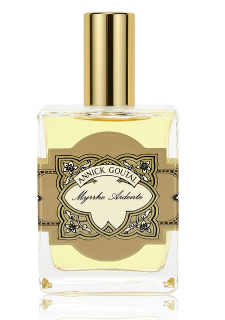Fragrance and the Arts: Fiction Vol. I, Book i.
In a series written exclusively for Sniffapalooza Magazine, prepare yourself for a multi sensory olfactive journey, where fragrances embrace the worlds of fiction, fine art, film, music and dance.
Acknowledgement: The series of ‘ Fragrance and the Arts’ is inspired by the brilliant multi sensorial métiers of perfumers and fragrant friends and innovators, including Michel Roudnitska, Kilian Hennessy, Vero Kern, Jean Claude Ellena, Jean Laporte, K. Michael Mihov, Andy Tauer, Thierry Mugler, Neil Morris, Olivier Creed, Yosh Han, Maurice Roucel, Bertrand Duchaufour, Christopher Brosius, Mandy Aftel, Sali Oguri, Maitre Parfumeur et Garnier, in association with Les Parfums Historiques, Raphaella and ‘Les Karens’.
Volume 1 Book i
Tales, myths, and larger than life characters thrive in the world of perfumery and this is what makes perfumery mysterious, multifaceted, intriguing, magical, and forever wavering between fact and fiction. In Volume 1, Book 1i. we meet the niche ‘feminines’ who had most profound effects on us from both a literary and olfactive perspective.
The Book: The Old Testament
The “Character”: Eve
The Fragrance: Bois de Paradis by Parfums DelRae
The Nose: Michel Roudnitska
The Fragrant Quote:
“He kicked them out of the
Garden of Eden and placed angels on the East
side of the Garden. He also placed a flaming sword,
which turned every way, to keep Adam and Eve from
entering the garden again.”- Book of Genesis
Poor Eve mentioned only five times in the entire Bible and blamed for the downfall of all mankind. Bottom line,
given everything including domain over all the creatures of the earth, Eve and her mate Adam were forbidden but one thing--- the fruit of the tree of knowledge. Eve succumbed to the temptation of the sneaky Satan
and the couple was cast out of Paradise with her man.
As Adam and Eve fled the Garden of Eden, their last sensory impression, as they ran into the wilderness,
might have been olfactive and if it would surely have smelled like Bois de Paradis. The great 'bones' of its
composition and superb quality of ingredients---bergamot, rose, cinnamon and blackberry, fig, cedar,
balsam and amber do not define this perfume. The nose and senses of perfumer Michel Roudnitska is
touched by the divine. It is a fragrance that evokes everything that was lost in Paradise.
The Book: Jayne Eyre by Charlotte Bronte
The Character: Jayne Eyre
The Fragrance: Bluebell by Penhaligon’s
The Fragrant Quote: "I am no bird; and no net
ensnares me; I am a free human being with an independent will."
Before its publication, Charlotte Bronte’s working title was Jayne Eyre: An Autobiography. Primarily, this gothic novel told in the first person voice of Jayne, is told in five parts. First, the story opens with 10 yr old Jane, a poor orphan at the mercy of her cruel relatives suffering through an abusive childhood. Next, we see her as a student who attends a school where she doesn’t fit in and endures adversity. After she graduates and becomes a governess, she falls in love with her employer, Mr. Rochester (who loves her as well, although neither declares their heart to each other). Due to draconian and melodramatic circumstances ranging from intrigue to illness, she leaves Thornfield, her true love’s home and contemplates marriage with her cousin, a cold clergyman. After more harsh conditions and misfortunes, Jayne with her very British perseverance reunites with Edward Rochester and marries her hero.
Jayne is quintessentially British as is Penhaligon’s London, a fine Penhaligon’s fragrance perfumerie with a legacy beginning in the 1860s, just about the time Jane Eyre was written. Bluebell is perhaps the most British and iconic of all Penhaligon’s scents and is a beloved cult classic, (as is the novel) to generations of romantics. Bluebell is not a simple soliflores and declares its nature from the onset; top notes of citrus, suggesting bitterness, and heart notes of gentle but hardy florals, including Hyacinth, Lily of the Valley, Cyclamen, Jasmine and Rose. Base notes of Galbanum, Clove and Cinnamon show veiled passion.
Just like Jayne herself, Bluebell is utterly appealing, tenacious and unique.
Available at Saks Fifth Avenue NYC and www.penhaligons.com
The Book: The Iliad by Homer
The Character: The goddess Aphrodite
The Fragrance: Prelude to Love ---invitation by Kilian
The Nose: Calice Becker
The Fragrant quote: “Even if you gods, and all
the goddesses too should be looking on.
Yet would I be glad to sleep with the golden Aphrodite”
Aphrodite, the Greek Goddess of love has inspired
everyone from Homer to Woody Allen. She was both
beautiful and officious. She was married to Hephaestus,
the homely god of the forge, who by accident fashioned
a girdle for her that caused every man or god to fall in
love with his own wife! Aphrodite was as meddlesome
and capricious as she was stunningly beautiful, enticing
both gods and mortals to do her bidding. In fact, she
promised the hand of the much married Helen of Sparta
to Paris of Troy, aka the Judgment of Paris, if he declared
her the ‘fairest of all the goddesses. It was this promise
that started the long and bloody battle known as the
Trojan War, as chronicled in Homer’s epic The Iliad.
No matter if Aphrodite was depicted as naive and
reserved (as in the painting the Birth of Venus by Botticelli),
there can be no doubt she is very self-aware and comfortable
with the fact that she is the most beautiful creature in the world.
There are many striking fragrances, of all the new launches
only one has bewitched me--Prelude to Love, Invitation -
by kilian. The fragrance, composed by perfumer Calice Becker,
opens with an innocent invitation of sweet bergamot,
orange and lemon notes. Next the sensual heart notes
are disclosed; vibrant neroli and orange blossom, with a
hint of beguiling ginger and although it isn't listed --
the smell of the skin of a ripe golden delicious apple.
The golden apple skin aroma brings to mind the Golden
Apple of Hesperides the trophy Paris gave to Aphrodite
in return for the love of Helen. Aphrodite’s ‘prelude to love’
was one of attraction, possession and led to one of the bloodiest
wars of ancient times. There is a tinge of a metallic blood note,
in the whisper of pepper piercing the heart note.
I must, must, must own this, bottles and bottles of it.
Mighty Aphrodite!
Available at Bergdorf Goodman in September 2008 and Aedes
The Book: Ulysses by James Joyce
The Character: Molly Bloom
The Fragrance: Frederic Malle Carnal Flower
The Nose: Dominique Ropion
Fragrant quote: aka Molly Bloom’s Soliloquy: "..
I was a Flower of the mountain yes when I put the
rose in my hair like the Andalusian girls used or
shall I wear a red yes and how he kissed me under
the Moorish wall and I thought well as well him as
another and then I asked him with my eyes to ask gain yes
and then he asked me would I yes to say yes my mountain
flower and first I put my arms around him yes and drew him down to me so he could feel my breasts all perfume yes and his heart was going like mad and yes I said yes I will Yes.”
In James Joyce’s Ulysses, Dubliner Leopold Bloom (the connection to perfume already established) might have been the protagonist, but it’s his unfaithful wife of ten years, Molly, who is my “fragrant” thread throughout this tome. She is earthy, sometimes coarse but alive;she loved her Leopold, although not in fidelity shown by Penelope for Ulysses. Molly’s soliloquy is the last chapter of these epic 1265 pages; her stream of consciousness, (which is quoted above) is her mind wandering and recalling randomly the first time she
and Leopold made love.
Carnal Flower and Ulysses are perhaps two of the most intense works of art to evaluate. You cannot just spritz (or read) and go. One finds different nuances every time one wears Carnal Flower. One moment it is fleshy and opulent, and then suddenly it’s green and murmurs softly. It is as sensual as a caress on the skin. On occasion, its pure physicality and you can barely detect the floral accord and smell only musk and coconut.
The scent, like the novel, unfolds in ‘episodes’. Top note bursting of green sap, the marriage of tuberose and orange blossom, moments woven of coconut and milky tones, the sudden appearance menthol and eucalyptus, and the musk of feminine pheromones. Finally, Carnal Flower’s drydown is the re-emergence of milky, musky, drowsy tuberose. Just as Ulysses was Joyce’s oeuvre, Carnal Flower is Malle’s.
The Book: A Thousand and One Arabian Nights translated by Husain Haddawy
The Character: Sherazarde
The Fragrance - Amouage Jubilation 25
The Nose: Lucas Sieuzac
The Fragrant Quote: “ And so the King kept Scheherazade
alive as he eagerly anticipated each new story, until, one thousand
and one adventurous nights, and three sons later, the King had
not only been entertained but wisely educated in morality and
kindness by Scheherazade who became his Queen”
My all time heroine is Sherazarde, who manages to mesmerize the
capricious King of Persia, who sleeps with a new virgin every night...
then kills them off at dawn. The slaughter ends when meets
Sherazarde, who weaves tales so mesmerizing and magical that the king not only lets her live, but marries her and enjoys her talent for story telling as they raise their three children. (I must disclose that this fragrance eerily evokes the ghost of Femme, the first perfume I chose for myself at age 16, created by the legendary Edmond Roudnitska. So I am predisposed to feel affection for it. The ‘real’‘ Femme” no longer exists, but that is another story.)
So which contemporary fragrance is as intricate as the tales of Sherazarde; exotic journeys to places out of time --- where carpets fly and Sinbad sails uncharted sea? Amouage Jubilation 25. This masterwork opens with a blast of cumin so powerful, it creates a cloud, but after a minute or so, its beauty is uncovered bit by bit; it would take 1001 nights for me to understand Jubilation 25’s complexity. Occidental notes of tarragon, Turkish rose, ylang-ylang, davana, labdanum, frankincense, amber, musk, vetiver, myrrh and patchouli weave the intricate tapestry that tells a continuing tale on the skin. Perfumer Lucas Sieuzac has quite a ‘royal’ future, and his head will stay squarely on his shoulder, especially if he continues creating fragrances this luxurious and eloquent.
The Book: Lolita by Vladmir Nabokov
The Character: Lolita
The Fragrance: Manuel Canovas Pink Riviera
The Noses: Perfumers Viviane Romani and
Patrick Bodifée under the creative direction of Byron Donics.
The Fragrant Quote: “Lolita, when she chose, could be
a most exasperating brat. I was not really quite prepared
for her fits of disorganized boredom, intense and vehement
griping, her sprawling, droopy, dopey-eyed style, and
what is called goofing off.”
Sound like anyone you have read about in the tabloids? Ha!
I don’t think even the young Britney Spears clad in plaid schoolgirl uniform could hold a pair of designer sunglasses to the wily Lolita,
the prepubescent nymphet created by the brilliant author Vladmir Nabokov in 1955; the 1950s being a time in our culture where pedophilia was such a taboo it was never discussed.
The contemplative and serious Humbert Humbert loses all sense of reality along with his sanity when he moves to a boarding house and spies ‘Lo’, who from that moment on consumes his every thought. His obsession overrides all sense of morality and propriety, so he marries her mother just to be close to the teasingly slightly out of reach 12 year old Lolita. His explicit diary is uncovered and is his undoing, and the exasperating Lolita is seen as a ‘victim’.
Pink Riviera is just the kind of fragrance young Lolita would wear. No cotton candy frothiness nor over-the-top treacle sweetness; the notes of bergamot, citron, mandarin, wild mint, jasmine, rose, sandalwood, white musk and amber are bubbly and beguiling, borderline sensuality. Does a child wear two of the most sensual oils in feminines--- amber and rose? Not unless she is party to the seduction.
Available at www.beautyhabit.com
The Play: Antony and Cleopatra by William Shakespeare
The Character: Cleopatra
The Fragrance: Aphrodisiac by Lumar of Beverly Hills
The Nose: Lusina Yaraliantz
The Fragrant Quote:
"Age cannot wither her, nor custom stale
Her infinite variety: other women cloy
The appetites they feed, but she makes hungry
Where most she satisfies.”
Antony and Cleopatra is my favorite Shakespearean play because one can argue it’s not a formulaic tragedy. Unlike pure fiction, the play is based on some historical facts surrounding the life, loves and death of Cleopatra, Queen of Egypt. As the plot unfolds, there are wars, clashes of cultures, intrigue, plotting family, lust, blood, power struggles, etc., but for me, it’s all about one question: Was Antony and Cleopatra in love or did they align themselves for power?
Cleopatra was no stranger to Rome. Her charms and intellect had already seduced Julius Caesar, murdered a few years before the play takes place. Cleopatra wastes no time in seducing Marc Antony, one of Rome’s ruling Triumviri, formed after the death of Caesar. Marc Antony begins to avoid his military and patriotic obligations to Rome and ends up allying himself with his lover Cleopatra.
What motivates her? Power or love? Does Cleopatra kill herself out of devastation over the loss of Antony or because she has lost her kingdom?
Reputedly not a beauty, Cleopatra was brilliant and devious, and used her charm as an art to conquer men’s hearts. Thus, the new fragrance Aphrodisiac by Lumar is apt (not a typo for asp). According to the Company’s spokesperson, it was inspired from Cleopatra’s own ancient Egyptian perfumed bath oil recipe. Redolent of roses and neroli, notes that are feminine and inviting, yet at the fragrance’s heart is a disturbingly sensual tuberose accord, which is heady and slightly overpowering. The musky, milky base grounds the composition with its aura of desire.
Available at www.apothia.com
The Book: The French Lieutenant’s Woman by John Fowler
The Character: Sarah Woodruff
The Fragrance: Douce Amere by Serge Lutens
The Nose: Christopher Sheldrake
The Fragrant quote: “Soon he no longer bothered to hide the nature of his intensions towards me. Nor could I pretend surprise. My innocence was false from the moment I chose to stay. I could tell you that he overpowered me, he drugged me.
But it was not so... I gave myself to him.”
Sarah Woodruff is an enigma. Known in the small town of Lyme Regis as ‘the whore’, her story is based on an alleged affair with a married French officer who abandoned her. A Victorian gentleman name Charles Smythson finds that he is strangely drawn to her, even if it means losing his chaste and uninteresting fiancée. Change a few pronouns and it could easily have been Charles not Sarah that authored the quote above.
Did she have the affair with the French Lieutenant, or is her story the imaginings of a neglected woman that chooses notoriety over anonymity?
The book is a bundle of contradictions, as is Douce Amere from the moment it touches your skin. The drug in the Douce Amere is the absinthe, the smell is cool and narcotic and the cinnamon note is fiery and passionate. The floral accord is eerie and the woody notes omnipresent. With heart notes of licorice and powder; the perfume is as light as Charles life before meeting Sarah and as dark as their relationship ultimately becomes. Douce Amere is a perfect fusion of fact, fragrance and fiction--- all captured in Fowler’s haunting book and Sheldrake’s composition; decadent, mysterious, melancholy, troubled, and decidedly addictive.
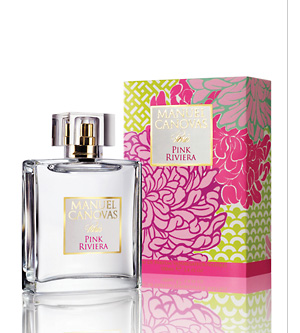
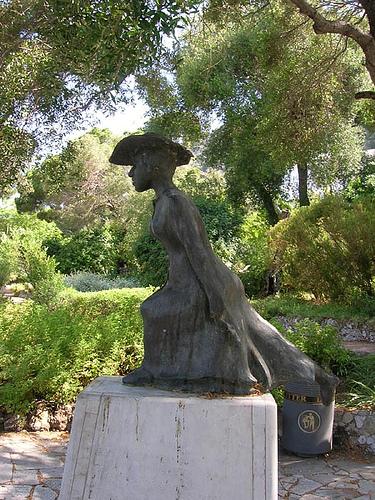
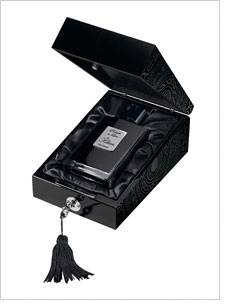
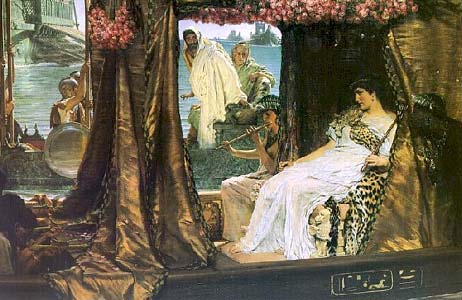
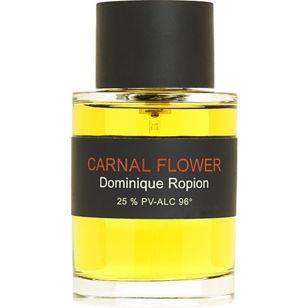
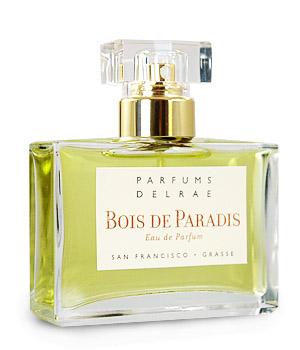
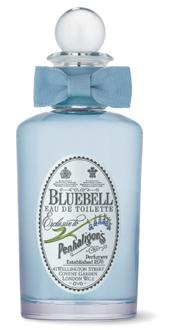
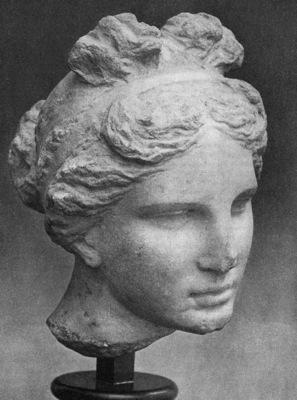
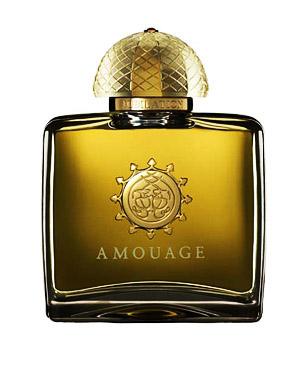
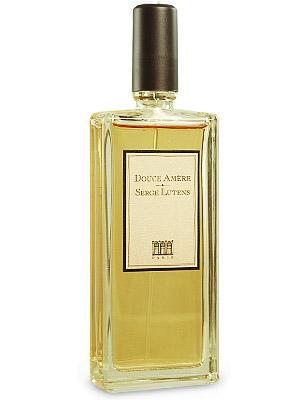

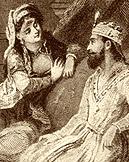

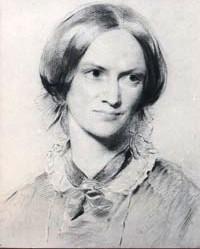
Fragrance and the Arts Series

Fragrance and the Arts: Fiction Vol. I, Book ii
This is the second installment in a series written exclusively for Sniffapalooza Magazine; a multi sensory olfactive journey, where fragrances embrace the worlds of fiction, fine art, film, music, and dance.
Acknowledgement: This edition of ‘Fragrance and the Arts’ is dedicated to brilliant multi sensorial métiers of perfumers as well as fragrant friends and innovators, including Michel Roudnitska, Jane Hendler, Vero Kern, Jean Claude Ellena, Camille Goutal, Andy Tauer, Francois Duquesne, Etienne de Swardt, Thierry Mugler, Serge Lutens, Frederic Malle, Bertrand Duchaufour, Mandy Aftel, Maitre Parfumeur et Gantier, in association with Les Parfums Historiques, Raphaella, my best friend Gail, my parents who are both discussing niche fragrances with anyone who will listen, and ‘Les Karens’ .
Volume 1 Book ii
In Volume 1, Book ii we meet a Cop and three Queens, a pampered socialite and a woman of ill repute, and an aging beauty and a Goddess. These fictional and/or iconic women span centuries and continents, blurring the lines between truth and fiction and time --- from the 10th century BC to the Year 2058. These are their fragrances; the scents that would bring them to life and live forever in the realm of our imagination.
The Play: "Rain"; a play in three acts, founded on W. Somerset Maugham's story, "Miss Thompson”
The “Character”: Sadie Thompson
The Fragrances: Mahora and Mayotte by Guerlain
The Fragrant Quote: “No, Doctor, moral standards can
never be high enough. Especially here, where all of
nature seems to conspire against us. Everything grows
with a sort of savage violence; today you will see strange
flowers where yesterday there were only roots.” --Mr. Davidson
Sadie Thompson is a woman of questionable repute, living on a South
Sea island trying to re-make her life. She arrives in Pago-Pago on
the lam, but when the zealous missionary Mr. Davidson lashes out
against her lifestyle and tries to force her back to San Francisco,
she sees any hope of a second chance slip away. The dour and
unrelenting Mr. Davidson is on a mission to reform Sadie. She
appears to give in and begins to pray and repent. Mr. Davidson
spends several days alone with the ‘new’ Miss Thompson, cleansing
her soul of sin. In the end, Sadie is Sadie; she seduces the
missionary and Davidson subsequently commits suicide rather
than face a suddenly uncertain future. Immediately after his death,
Sadie doesn't miss a beat---laughing and chatting up the sailors and
is back to her raucous self.
I chose both Mahora and Mayotte for Sadie Thompson, not just because they are both
tropical fragrances that smell of the South Pacific, but they strike ‘an accord’ regarding the
“two Sadies”.
Both fragrances pay homage to the island of Mayore, where the House of Guerlain has jasmine
and ylang-ylang plantations. In an attempt to propose a new twist to the tropical Mahora,
(the headier perfume version). In 2006 ,Guerlain added Mayotte to its collection of re-editions
called Les Parisiennes. It seems clear that it was a re-bottling of Mahora issued in 2000.
There is a slight but noticeable differential on skin-from the very top note; Mahora starts out
with a burst of orange and quickly turns into fruity, buttered tuberose. It strikes me as loud,
aggressive and even mutinous. Its sweet, and there is slickness to the tuberose note that
seems defiant.
While Mahora is heady and forceful, Mayotte is less strident, and the ylang-ylang and
frangipani notes seem more outstanding. Yet, Mayotte can hardly be called a meek and
acquiescent version of Mahora. Let’s compare: Mahora features the notes of orange,
almond tree blossoms, ylang-ylang, neroli, tuberose, jasmine, sandalwood, vetiver, and
vanilla; the notes for Mayotte are neroli, frangipani, tuberose, ylang-ylang, jasmine,
sandalwood, vetiver, and vanilla.
Mahora/Mayotte is the Janus of perfume.
Available at The Guerlain Boutique at Bergdorf Goodman
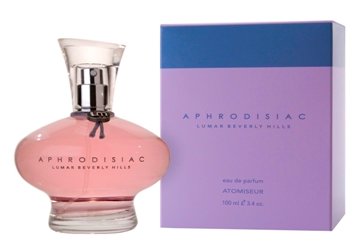
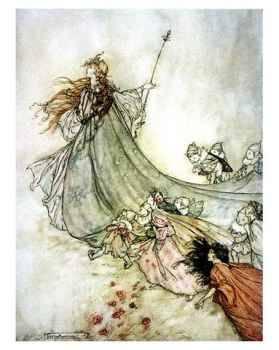
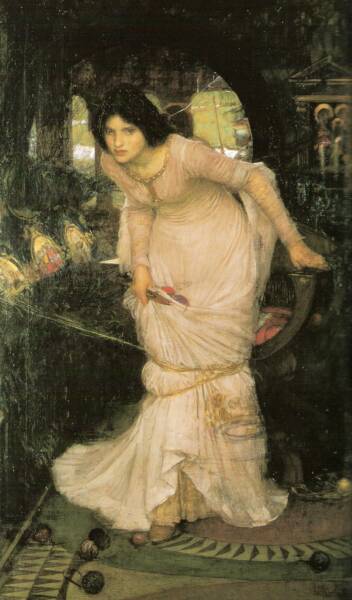
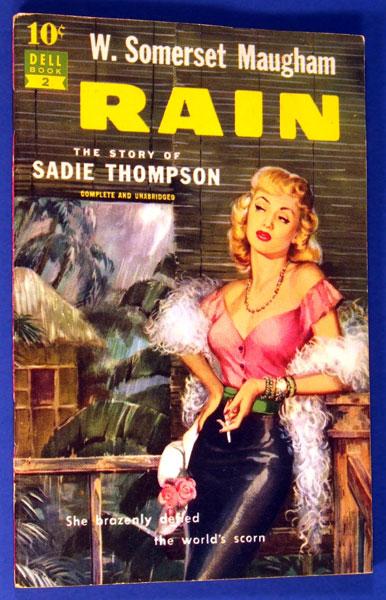
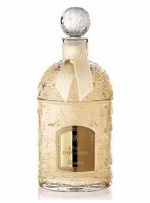
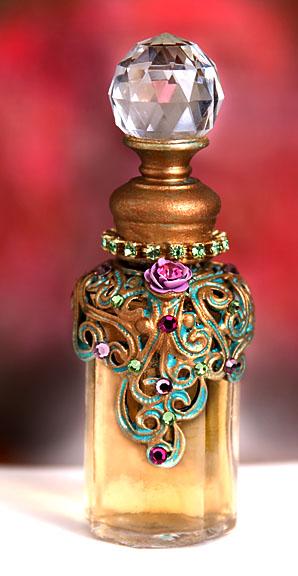
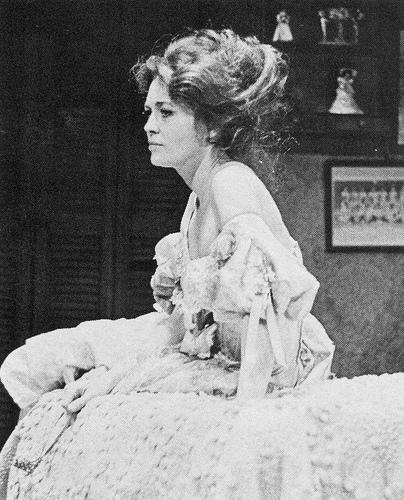
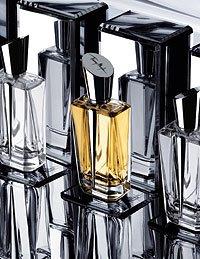
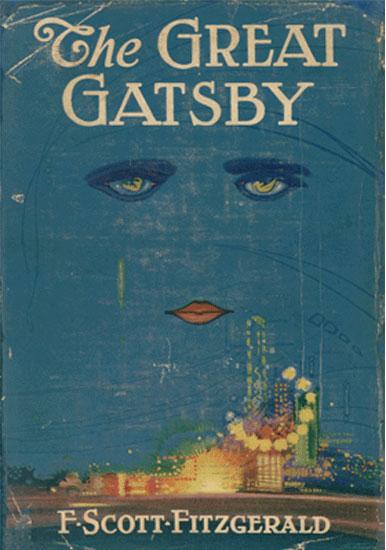
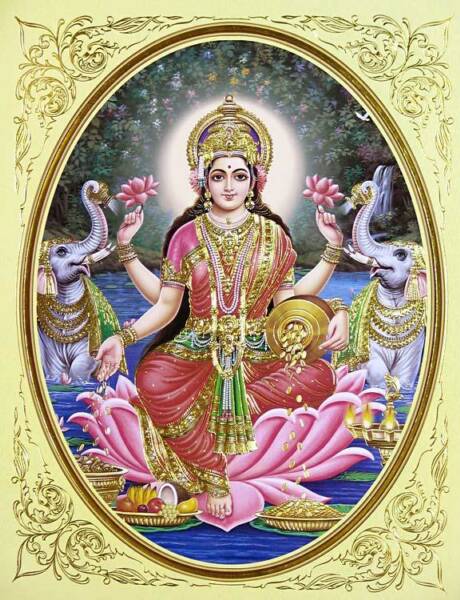
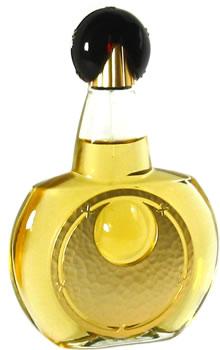
Mayotte
Mahora
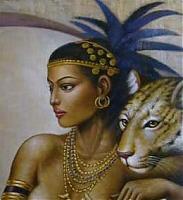
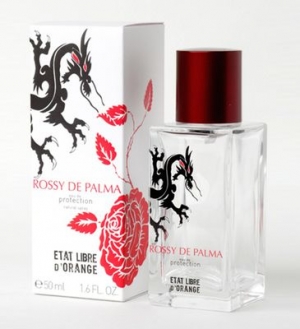
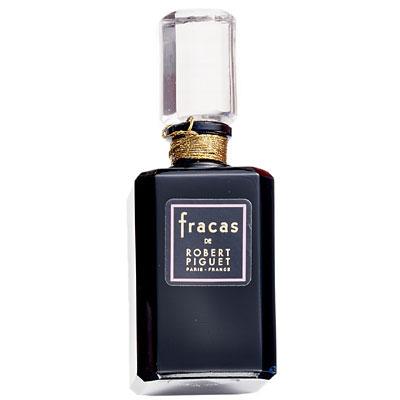
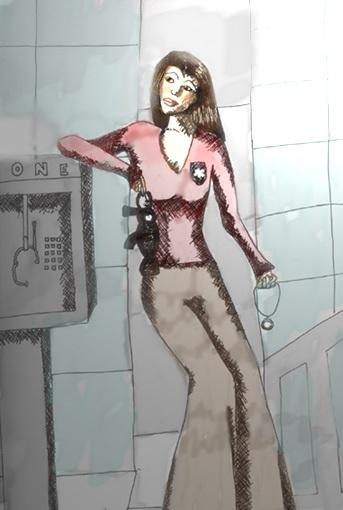
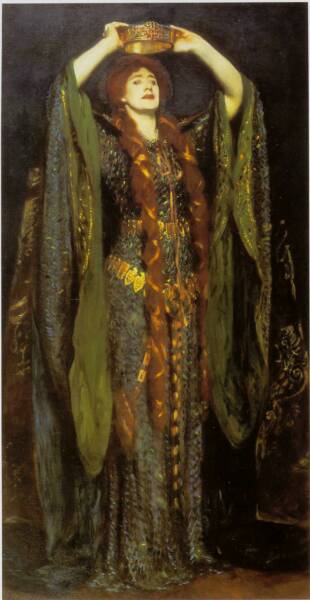
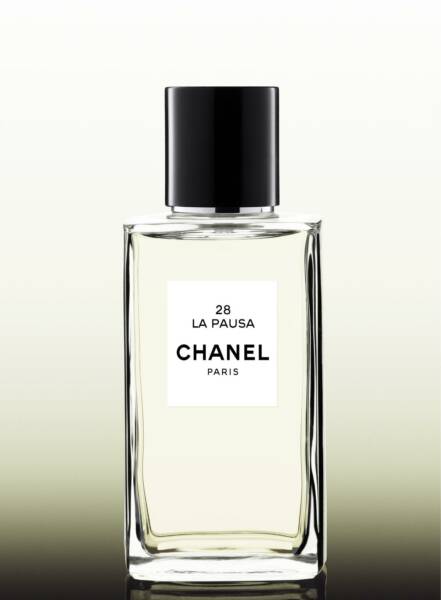
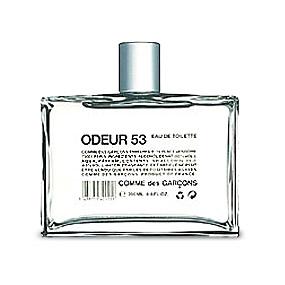
The Book: The Hebrew Old Testament
The Character: Makeda, the Queen of Sheba
The Fragrance: Myrrhe Ardente by Annick Goutal
The Fragrant Quote:
“While the king sitteth at his table,
my spikenard sendeth forth the fragrance thereof.
A bundle of myrrh is my well beloved unto me:
he shall lie all night between my breasts.
My beloved is unto me as a cluster of henna flowers
in the vineyards of Engedi.” --Songs of Solomon- 1:12
Makeda, according to lore and legend, is the mysterious and
majestic Queen of Sheba, and the beloved of King Solomon of
Judea. However, according to the Hebrew Bible, a chaste and
unnamed queen of the land of Sheba heard of the great wisdom
of King Solomon of Israel and journeyed there with gifts of spices,
gold, precious stones, and beautiful wood and to test him with
questions, as recorded in First Kings 10:1-13 (2 Chronicles 9:1–12)
It is related further that the queen was awed by Solomon's great
wisdom and wealth, and pronounced a blessing on Solomon's deity.
Solomon reciprocated with gifts and "everything she desired,
" whereupon the queen returned to her country. The queen was
apparently quite rich, however, as she brought 4.5 tons of gold
with her to give to Solomon (1 Kings 10:10).There is no hint of
love or sexual attraction between Solomon and the Queen of
Sheba. The two are depicted merely as fellow monarchs engaged
in the affairs of state. But the Songs of Solomon (the shortest book in the Bible with only 117 verses) are amongst the most beautiful
odes to love between a man and a woman ever written. Makeda’s name is never mentioned.
Together they had a son, Menelik I, who would become the first Emperor of Ethiopia. Based on a text The Kebra Nagast, a royal chronicle compiled in Abyssinia in the 14th century, this ancestry reestablished the Solomonic line. In 1270, with Emperor Yekuno's declaration to be the lineal descent Menelik, all succeeding Ethiopian rulers confirmed they have full filial and ruling rights by birth to Yekuno Amlak and, by that means, to King Solomon and Queen Makeda.
Camille Goutal (with Isabel Doyen) introduces three new Annick Goutal fragrances this season -Les Orientalistes. They are unisex; based on ancient perfumes of great value --- Amber, Frankincense and Myrrh. But Myrrhe Ardente is my pick for Makeda. It is by far the most gourmand of the three, (Les Orientalistes also include Ambre Fetiche and Encense Flamboyant). The scent opens with a Madagascar inspired vanilla note and with benzoin, then moves into a boozy heart, with hints of menthol, wormseed and anise. The base notes are ancient guaic wood and soft leather. Myrrhe Ardente is fit for the majestic Queen Makeda and (her partner and equal) King Solomon This perfume magically evokes the Kingdom of Ancient Israel during its Golden Age.
The Play: Macbeth by William Shakespeare
The Character: Lady Macbeth
The Fragrance: Rossy di Palma Eau de Protection
by Etat libre d’orange
The Fragrant quote:
"Here's the smell of the blood still;
all the perfumes of Arabia will not sweeten
this little hand. Oh, Oh, Oh!"
-Lady Macbeth
Lady Macbeth is one of Shakespeare's most famous
and chilling female characters. When we first see her,
she is already plotting the current King's murder. She
is stronger, more ruthless, and more ambitious than
her husband. She may seem frightening, but she is
frustrated; she will have to push her husband Macbeth
into committing murder in order for him to become King.
At one point, she wishes that she were not a woman
so that she could do it herself (this is a recurrent
theme examining the relationship between gender
and power) and is key to understanding Lady
Macbeth’s character. Her husband implies that
she is a masculine soul inhabiting a female body,
which seems to link masculinity to ambition and violence.
The deed is done by her husband Macbeth. But it is Lady Macbeth who calms her husband's nerves
immediately after the murder. In short order, guilt begins to plague her and create a nightmarish existence.
By the close of the play, we watch as this once sure and steady woman loses her mind; she is constantly
and desperately trying to wash away an imaginary bloodstain. Lady Macbeth is unable to cope. Significantly,
she (apparently) kills herself, signaling her total inability to deal with the aftermath of their crimes.
Lady Macbeth is all woman, and Shakespeare, seems to use her, and the Witches, (“something wicked this way comes”) to undercut Macbeth’s idea that “undaunted mettle should compose / Nothing but males” (I.vii.73–74). Shakespeare portrays women as crafty, who use female methods of achieving power— that is, the notion of manipulation— to further their supposedly male ambitions. Women, the play implies, can be as ambitious and cruel as men, yet societal constraints deny them the means to pursue these ambitions on their own.
Again, the character and the scent are perfectly matched. Although, created for Spanish actress Rossy de Palma, Rossy de Palma Eau de Protection is the scented incarnation of Lady Macbeth. The central and dominant note is rose. The fragrance was created by Antoine Lie and Antoine Maisondieu who made it bizarrely beautiful, uniting the gorgeous Bulgarian rose accord with a cauldron of ginger, black pepper, bergamot, jasmine, frankincense, patchouli, cocoa and benzoin. The fragrance does something very interesting; the majestic rose cuts with very sharp thorns, and there is a strong metallic scent of blood that lingers. Marketed as a woman’s fragrance, I know quite a few men that prefer it to Le Labo 31 or Rose Poivree. Although in this play Lady Macbeth says “Unsex me:”…perhaps she left out the “i” and it should read unisex.
Writer’s Note: I am top editing this section the evening of Senator Hillary Clinton’s address to the Democratic Convention. Is there anyone more disciplined, and more focused than Ms. Clinton? As Ms Clinton states, “there are 18 million cracks”. Perhaps Lady Macbeth isn't scary after all. Just created in the wrong place at the wrong time.
Available at Henri Bendel
The Poem : The Lady of Shallot by Lord Alfred Tennyson
The Character: The Lady of Shallot
The Fragrance: Dis-Moi Miroir by Thierry Mugler
The Fragrant Quote:
But in her web she still delights
To weave the mirror’s magic sights,
For often thro’ the silent nights
A funeral, with plumes and lights,
And music, went to Camelot:
Or when the moon was overhead,
Came two young lovers lately wed;
‘I am half sick of shadows,’ said
The Lady of Shalott.
From the bank and from the river
He flash’d into the crystal mirror,
‘Tirra lirra,’ by the river
Sang Sir Lancelot.
She left the web, she left the loom,
She made three paces thro’ the room,
She saw the water-lily bloom,
She saw the helmet and the plume,
She look’d down to Camelot.
Out flew the web and floated wide;
The mirror crack’d from side to side...”
This is one of my favorite poems by Alfred, Lord Tennyson. I must admit, I have always been
fascinated by Arthurian legend and this poem‘s poignancy and its suggestion of ‘artistic
isolation and yearning’ (which are figuratively placed under a curse and locked in a tower),
never fails to move me. When the bonds that keep these ideals and emotions from reaching
others break, (as symbolized by the death of the Lady of Shallot), they die.
The first four stanzas describe a pastoral setting. The Lady of Shallot lives in an island castle
in a river which flows to Camelot, but little is known about her by the local farmers Stanzas
five through eight describe the lady's life. She has been cursed, and so must constantly
weave a magic web without looking directly out at the world.
Instead, she looks into a mirror which reflects the busy road and the people of
Camelot who pass by her island. Stanzas nine through twelve describe "bold Sir Lancelot" as he rides past, and is seen by the Lady. The remaining seven stanzas describe the effect of seeing Lancelot on the Lady; she is smitten and stops weaving and looks down to Camelot, bringing about the curse. She leaves her tower, finds a boat upon which she writes her name, and floats down the river to Camelot.
She dies before arriving at the palace; the knights and ladies gather around her floating body and remark they do not know who she is.Lancelot is among them; he merely pauses for a moment to note “she hath a lovely face” and continues on his journeys without a second thought.
Symbolically Dis-Moi Miroir by Thierry Mugler ‘reflects’ the poem. Dis Moi is a relatively obscure but absolutely gorgeous creamy floral fragrance from the niche Miroir, Miroir collection; a departure from Mugler’s Angel franchise. The bottle is mirrored and is literally a tower. Created by Fabrice Pellegrin, (he of Diptyque Do-Son aka tuberose underwater) this is an “Ophelia’ fragrance. Its muted, milky notes and the delicate orange blossom create something innovative, liquid and pale, and is not warmed by the dazzle of the white lily (Camelot) accord. If this scent is unknown it’s because no one has stopped to view the facets of its”lovely face”.
Available at www.thierrymuglerbeauty.com
The Book: The Death Series
The Character: Eve Dallas
The Fragrance: Odeur 53
Fragrant quote:
"I love a bloody criminal," Eve muttered, "but nobody ever thinks of that."
--Vengeance In Death
Eve Dallas, the main character of the In Death series,a futuristic (circa 2058 AD) romance-mystery
series by J.D. Robb, pseudonym for NY Times best-selling author Nora Roberts. Eve is a fiercely
dedicated cop; she is married and has very few friendships and remarks that she can "count on
her hands" how many people there are who really mean something to her. Later on, she falls in love.
Her lover is a police consultant and a suspect in a murder case, named Roarke. Roarke says to her
in Memory in Death that for someone who intrinsically doesn't like people, there's no one more determined to find them justice. Since the series is set in 2058, I am making a sad assumption…our world and our precious resources have diminished and are only available to the very rich. Therefore, Eve Dallas would wear a synthetic fragrance.
In 1998, CdG stepped away from natural ingredients, seeking to create a fragrance for a futuristic manmade world. The result? Comme des Garcons Odeur 53 has fifty three ingredients that are non-traditional notes. As unconventional as Eve Dallas, Odeur 53 includes notes of “oxygen, flash of metal, fire energy, washing drying in the wind, mineral carbon, sand dunes, nail polish, cellulose, pure air of the high mountains, ultimate fusion, burnt rubber, flaming rock”.
Odeur 53 is the perfect scent for this pragmatic and sensual cop/ woman who live on the edge, 50 years from now. Knowing Eve Dallas, she will share it with Roarke, but first she will put up a good fight.
The Book: The Great Gatsby
The Character: Daisy Buchanan
The Fragrance - 28 La Pausa from Chanel Les Exclusifs
The Fragrant Quote:
“Her voice is full of money,’ he said suddenly. That was it.
I’d never understood it before. It was full of money –
that was the inexhaustible charm that rose and fell in it, the jingle of it…
High in a white palace the king’s daughter, the golden girl.” –Nick Carraway
The Great Gatsby is a novel by American author F. Scott Fitzgerald, published on
April 10, 1925, and is set in Long Island's North Shore and New York City during
the summer of 1922. An icon of literature, The Great Gatsby is ranked second
in the Modern Library's list of the 100 Best Novels of the 20th Century. Time
Magazine included the novel in its TIME 100 Best English-language Novels
from 1923 to 2005. There is a film version that is very familiar to Americans that
starred Mia Farrow, as the beautiful and desirable, but flighty Daisy Buchanan.
The novel chronicles an era that Fitzgerald himself dubbed the "Jazz Age."
Following the shock and chaos of World War I, American society enjoyed
unprecedented levels of prosperity during the "roaring" 1920s as the economy
soared. It was a time when self made men like the character Jay Gatsby had
as much money but not the ‘class’ and confidence of those who were born to great wealth.
Nick's modest cottage is next-door to an enormous mansion owned by the mysterious
Jay Gatsby. Gatsby is extremely wealthy, and no one seems to know much about
the source of his wealth although rumors run rampant. What he is known for is hosting
outrageously luxurious parties, where hundreds of people show up each weekend.
Although many of the guests are uninvited, Nick soon receives a rather formal request
from one of Gatsby's butlers and finds himself embroiled in the party scene, although he
claims to despise mindless entertainment. Jordan Baker, Nick’s female acquaintance
eventually reveals to him that Gatsby holds these parties in the hope that Daisy, his
former love, will pay a visit.
It is also through Jordan that Gatsby asks Nick to set up a meeting with Daisy.
The reunion is ultimately successful: Gatsby and the married Daisy begin an affair.
Daisy is portrayed initially as the spoiled and pampered wife of a man of her own social
standing (her husband Tom is keeping a mistress of course). Of course she is lovely to look
at and charming to be around.
Jay Gatsby purports to love Daisy and Daisy cares for him but in a haphazard naïve way.
of course the question is does Gatsby love her or is he obsessed with her because she
represents a prize for which he can never really compete. For upper class men, the woman
one marries is of vital importance because she completes the "set" of things you must have
in order to play the upper class "game." Gatsby knows that, and he knows that Daisy would
secure his entrance into the "game" because she has the look, the attitude, the
very *smell* and *sound* of money. She was born to it. Moreover, she has all the right physical
qualities: beautiful, charming, and well traveled. Daisy is a symbol of wealth and class. After all
it was F. Scott Fitzgerald who said “the rich are different than you an me”.
Daisy’s scented trail led me to the House of Chanel and the perfumed legacy of the great
Coco Chanel that was bottled in eleven (soon to be twelve) niche fragrances named Les Exclusifs.
Ironically, the iconic Chanel No. 5 and other Chanel perfumes were first introduced in the 20’s,
exactly the time the novel was set.
It was not difficult to pick Daisy’s fragrance. I can hear her lilting voice whispering to her cousin
Nick, “Of course you love my new perfume, it’s the latest from Paris, from a new designer
named Mademoiselle Coco Chanel.”, she might say. “I picked it up while I was visiting the
continent and stopped in Paris, at her shop on Rue Cambon, while I was being fitted for a
darling little black dress. Oh and she lets her skin get brown in the sun. I won’t do it,
even if it IS the new fashion. A bit low class don’t you agree.”
Daisy is used to the very best and 28 La Pausa fits that demand perfectly. It is a scent based on the oil from iris pallida (known as sweet iris), one of the most expensive materials available to perfumers. 28 La Pausa is named for a house Mlle.Chanel owned in the South of France” namely the villa on Roquebrune-Cap-Martin on the French Riviera.
Iris/orris is currently the costliest ingredient to harvest and of course even if Daisy didn’t know this, it makes perfect sense that she would gravitate towards it, rather than, let’s say Chanel’s 31, rue Cambon. The luxurious feeling of 28 La Pausa is quite compelling. The silkiness of iris is almost a fabric on the skin. The iris is set into the frame of white floral notes and musk that heighten the softness of the composition. If 28 La Pausa unfolded as a blooming iris, it dries down to a scent of warm skin and face powder. I believe it is the way Daisy would smell. While 28 La Pausa is elegant, it is really just an absolutely gorgeous Iris soliflores, and (like Daisy) doesn’t pretend to be more than it is.
Its sillage is a bit fleeting (would this be THE best iris fragrance in the world if it was in eau de parfum strength? Yes!) but for me , like Jay Gatsby,
I love it the way it is.
Available at Saks Fifth Avenue and Chanel Boutiques
The Play: Streetcar Named Desire
The Character: Blanche DuBois
The Fragrance: Fracas by Robert Piguet
The Fragrant Quote:
“You come in here and you sprinkle the place with powder and you spray perfume and you stick a paper lantern over the light bulb - and, lo and behold, the place has turned to Egypt and you are the Queen of the Nile, sitting on your throne”
- Stanley Kowalski
Perhaps one of playwright’s Tennessee Williams most memorable masterpieces is A Streetcar Named Desire (he won the Pulitzer Prize for it) and the role of the iconic Blanche DuBois has been performed by legendary theater actresses including Jessica Tandy, Talullah Bankhead and Jessica Lange. A few years after the play was written, Marlon Brando, (who starred in the original Broadway production), reprised the role of Stanley Kowalski in the movie version directed by Elia Kazan, and co starring Vivian Leigh. Who can forget Brando‘s gut wrenching cry “STELLA !!!!”, perhaps the most recognized line in any of its theatrical or film performances
Williams' work is often reflective of the "Southern Gothic" aesthetic, which presents a garish, dissolute, and macabre vision of the American South. The setting of the play, New Orleans, is an essential element of this play in particular. The play opens in New Orleans during the restless years following World War Two, A Streetcar Named Desire is the story of Blanche DuBois, a fragile and neurotic woman on a desperate prowl for someplace in the world to call her own.
After being exiled from her hometown of Laurel, Mississippi, for seducing a seventeen-year-old boy at the school where she taught English, Blanche explains her unexpected appearance on Stanley and Stella's (Blanche's sister) doorstep as nervous exhaustion. This, she claims, is the result of a series of financial calamities which have recently claimed the family plantation, Belle Reve.
Suspicious, Stanley points out that "under Louisiana's Napoleonic code what belongs to the wife belongs to the husband." Stanley, a strong and brutish man is as territorial as a lion. He tells Blanche he doesn't like to be swindled and demands to see the bill of sale. This encounter defines Stanley and Blanche's relationship. But Stanley and Stella are deeply in love. Blanche's effort to impose herself between the love between Stanley and Stella enrages the animal inside Stanley. When Mitch -- a card-playing buddy of Stanley's -- arrives on the scene, Blanche begins to see a way out of her predicament. Mitch, himself alone in the world, reveres Blanche as a beautiful and refined woman.
Yet, as rumors of Blanche's past in Auriol begin to catch up to her, her circumstances become unbearable. Did I mention she drinks A LOT?
'Streetcar' is a class-act from beginning to end; sexy, larger than life, and eternally fascinating. Another interesting coincidence; Piguet is celebrating its 60th birthday for Fracas this year, nearly coinciding with the writing of this play.
Fracas is as iconic as Blanche; both are deceptive. Fracas opens with sweet and delicate notes of bergamot, mandarin, and lilac. The heart brings a charming fusion of white flowers. But by the time the Tuberose, strident and seductive shows itself, (no matter the veiled and flirty jasmine, white narcissus, gardenia, and lily of the valley and white iris); it is the tuberose that is locked in an almost painfully passionate embrace with the base notes of sandalwood, vetiver and sensual musk.
Available at www.bergdorfgooman.com
The Book : The Four Noble Truths and the Eightfold Path: c.424 BC
The Character: Lakshmi
The Fragrance: Lakshmi
The Noses: Jane Hendler and Michelyn Camen
The Fragrant Quote: "Om Sri Maha Lakshmyai Namah"
The mantra to the Hindi Goddess Lakshmi.
(Repeat mantra 108 times for 40 days is reputed to bring prosperity)
Fall is my favorite time of the year; coincidently it also is when the Hindi Goddess Lakshmi
is reborn during the holiday of Deepavali (or Diwali). Each year, around the new moon in October
or November, Hindu people celebrate this Goddess of Fortune and invite her into their homes,
attempting to secure her favors for the year to come. This year, in most places in the United
States, it begins on October 30 and runs through November 2.
Lakshmi is such a special Goddess. She’s magical, and practical. She is the goddess of
prosperity and beauty. She has it made. Her mate is a God and her best friend, a guy.
In these times of challenge as in all times of challenge, she can be a comfort and a healer; she
brings a sense of greater fortune even in the darkest moments. She is a powerful cosmic connection;
a divine female who looks like us, and offers a sense of courage, of hope, of power.
I was very active in collaborating with Jane on Lakshmi, but more in the manner a novice can play
scales on the piano, but cannot compose a concerto. I could detect if a ‘note’ was off-key; another
small sample was sent to me, until after six tweaks, we both agreed it was just right.
According to Jane Hendler, perfumer and owner of AJNE, “You (Michelyn)
were my inspiration for Lakshmi, because you're a person passionate about perfume
and not about price. As such, there was not a thought about the expense of the ingredients
that went into its making. It was sheer delight for me as I pulled out all of my favorites with
no regard to reaching a specific price point as I so often
have to.
The base accord is made of notes of Australian (sustainable) Sandalwood, African
Cacao, East Indian Ambrette seed and Albanian Orris, the heart is of pure Bulgarian Rosa
damascena with hints of Magnolia and Indian Lotus and the subtle top note accord is designed
around blood orange.”
“The oils of Lakshmi are reputed to elevate you to your highest self, open your heart, enhance
creativity, invite a wellspring of prosperity and offer you a greater sense of grounding and security
as you embrace life¹s journey,” she adds, “This is the fragrance I wear everyday, I love it! “
Namiste.
The Play : A Midsummer’s Night Dream by William Shakespeare
The Character: Titiana Queen of the Fairies
The Fragrance: Summersent by Marjorie Midgarden
The Fragrant quote:
“I know a bank where the wild thyme blows,
Where oxlips and the nodding violet grows,
Quite over-canopied with luscious woodbine,
With sweet musk-roses and with eglantine:
There sleeps Titania sometime of the night,
Lull'd in these flowers with dances and delight;”
– Oberon, King of the Faeries (Act II, Scene 1)
A Midsummer Night’s Dream is a rich comedy of fantasy and life. Fairies play with
the emotions of their human counterparts for sport and with each other. Lovers turning
on one another at the drop of a spell and mediocre actors are turned into mules.
Midsummer’s Night Dream has inspired music by Mendelssohn, a movie starring Michelle Pfeiffer
as Titiana, a famous ballet starring Mikhail Baryshnikov dancing the part of Oberon and of course
a play performed by Shakespeare’s company and thousands of regional and global theatre
groups of all ages.
The plot is a plot within a plot. The Faerie Queen, Titiania, is miffed with her king, Oberon.
He formulates a plan to win his angry wife back and sends his trusted lieutenant, Puck to seek
a special flower to cast a spell on his beloved.
While waiting for his minion's return, Oberon spies the young quartet of lovers. When Puck returns with
the magic flowers, the king decides to play some mischief upon the four. He uses
the same magic to try to win back Titania, but Nick Bottom, an aspiring but bumbling
human thespian somehow turned into an ass (appropriately) becomes the object of her
affection instead of Oberon! But to quote another Shakespearean play, “all’s well that ends well”.
There is but one fragrance that came to mind for the Queen of the Faeries, Titiana and that is the
exquisite and beautifully bottle Summersent by Marjorie Midgarden. Summersent is ‘the fragrance of
dreams” and the parfum extrait is particularly exquisite. Using living flower technology, the fragrance
opens its floral petals one by one; a fresh green and mandarin accord begins to bloom as the heart
notes of Italian Jasmine, Moroccan Orange Blossom, Cassis Flower, and Genet are in full blossom.
Honey nectar is prominent in a soporific and haunting drydown which evoke Titiana’s line
“What angel wakes me from my flowery bed? The fragrance is extremely concentrated,
so a drop or two on the pulse points is all you really need.
Available at www.takashimaya-ny.com
Fragrance and the Arts: Fiction Vol. I, Book ii: The Masculines
This is the third installment in a series written exclusively for Sniffapalooza Magazine; a multi sensory olfactive journey, where fragrance embraces the worlds of fiction, fine art, film, music, and dance.
Acknowledgement: This edition of ‘Fragrance and the Arts’ is dedicated to the brilliant multi sensorial métiers of perfumers as well as fragrant friends and innovators, including Michel Roudnitska, Jean Claude Ellena, Andy Tauer, Christopher Brosius, Karl from Aedes, Franco from Luckyscent, Raphaella, Mike D., the support and well wishes expressed by the Sniffapalooza community (a special nod to Tim Girvin), and as always ‘Les Karens’.
Volume 2 Book i
Men in fiction – flawed as all men (and women) are, but men who dare to dream,
to rule or to experience. Whether they are vilified or placed high atop a pedestal,
here are five iconic men who 'lived' in a world long before our own time. These
men will always resonate with us and are brought to life here through fragrance.
The Book: Bury My Heart At Wounded Knee by Dee Brown
The Historical Figure: Sitting Bull the Chief of the Hunkpapa Sioux
The Fragrance: Lonestar Memories by Andy Tauer
The Fragrant Quote: “I wish it to be remembered that I was the last man of
my tribe to surrender my rifle.”- Chief Sitting Bull of the Sioux nation
I read Dee Brown’s Bury My Heart At Wounded Knee (which was published in 1971)
after I saw the HBO series. The film was fine, but it was the book that left me with an
intense sense of wrongness. History is usually written by the victors and this
documented saga differs vastly from what was taught to me in school; where
The American West was clichéd- ‘Cowboys vs. Indians,’ ‘good guys vs. bad guys’
and ‘civilization vs. heathen’ culture. After reading Bury My Heart At Wounded Knee,
I don't believe any of the revisionist history that was taught to me and I will never watch
a movie portraying the Indians as savages again.
Bury My Heart at Wounded Knee spans 60 years and moves from tribe to tribe of Native Americans, from chapter to chapter, and explores in great detail the relations of the tribes to the U.S. federal government. The book begins with the Navajos, the Apaches, and the other tribes of the American Southwest. Brown chronicles the changing and conflicting attitudes of both the American authorities (such as General Custer) and the Indian Chiefs, particularly Sitting Bull, the Chief of the Hunkpapa Sioux. His various attempts to save his people, by peace, war, or retreat is powerful reading. The book culminates with the Battle of the Little Bighorn, the death of Sitting Bull, and the slaughter of Sioux prisoners at Wounded Knee, South Dakota and is generally considered the end of the ‘Indian Wars’.
The character of Sitting Bull is best known for the defeat of Custer at the battle of Little Big Horn, the brave ‘last stand’ against the US military. He became famous throughout the frontier and at one time toured with Buffalo Bill Cody, before he returned to the Standing Rock Agency in South Dakota. The Government's fear that Sitting Bull would support the growing pro Indian movement that was threatening stability and as ‘reservations’. The US authorities ordered him arrested and during a struggle between Sitting Bull's followers and the police on Dec 15, 1890, Sitting Bull was shot in the side and head by police after they were fired upon by his supporters. Sitting Bull was one of the last leaders of a culture where there was no concept of ownership of land. To Native Americans, it belonged to everybody.
Of all the characters in Fragrance and the Arts, there was no second guessing Sitting Bull’s fragrance; the fragrance of a dying campfire, of open space, of ashes, and the senseless eradication of an entire culture. It is Lonestar Memories by Andy Tauer. Lonestar Memories is a primal ‘masculine’ that I believe captures the spirit of the ‘red man’ not the ‘white man’, yet tells the entire story of the American West in a bottle. In our contemporary world, where fragrances are increasingly unisex, this is the mot recent example of an outstanding masculine. Tauer lists Lonestar’s notes as; Geranium, Carrot seed, Clary sage, Birchtar, Cistus, Jasmine, Cedar wood, Myrrh, Tonka, Vetiver, Sandalwood.
Lonestar Memories starts with smoke and burning wood, then the odor of whiskey. The leather accord smells cured, and lends a raw and animalic quality that evokes the smell of a busy community; the cured leather of teepees, the smell of bison, the perspiration of people working day through night to survive. Later, Lonestar Memories become pungent and aromatic with cedar, birchtar, and a smokiness that brings to mind the retelling of ancestral legends, tribal dancing, and the gathering of men planning an offensive or an inevitable defeat around the campfire The dry down is woodsy smoky -- (a Tauer signature that I detect in most of his compositions). Sillage is subtle and brings to mind an even more primal and masculine trail.
It is a heroic scent, the smell of a man who dies for his people and for the ways of his ancestors. There is the smell of the wilderness with the onset of a different civilization encroaching.
The Book: The Three Musketeers by Alexandre Dumas
The Character: D’Artagnan
The Fragrance: Jicky by Guerlain
The Nose: Aimé Guerlain (creator of Jicky)
The Fragrant Quote: “While D’Artagnan was examining Mme. Bonacieux, and was, as we have said, close to her, he saw on the ground a fine cambric handkerchief, which he picked up, as was his habit, and at the corner of which he recognized the same cipher he had seen on the handkerchief which had nearly caused him and Aramis to cut each other's throat”. -- Chapter Ten
The monumental plot of this classic book takes place against the backdrop of the war between France and England. In the very first sentences of his preface Alexandre Dumas indicated as his source Mémoires de Monsieur D’Artagnan, printed by Pierre Rouge in Amsterdam. It was in this book, he said, that D’Artagnan relates his first visit to M. de Tréville, captain of the Musketeers, where he meets three young men with the names Athos, Porthos and Aramis. D’Artagnan, an aspiring musketeer, is a hot head and tries to engage the trio in combat. They gain each others’ respect and quickly become friends; the foursome embark on a seemingly endless series of swashbuckling adventures. They pledge service to the French Queen against The Cardinal, and D’Artagnan falls in love with the Queen’s confidante, a married woman Constance Bonacieux. They unite to defeat the King’s guard and the influential Cardinal Richelieu. There are dalliances and intrigue; D’Argtagnan is swept into a devious plot by the amorous overtures of the duplicitous Milady.
These guys get busy…the three musketeers and D’Artagnan have a lot of thwarting to do -- Cardinal Richelieu, The British and a host of schemers and plotters who are purported to be enemies of the Queen of France (who is in love with the Duke of Buckingham of England, (the enemy of France) to whom the ‘quatre amis’ have sworn to serve and honor.
The Three Musketeers is a tale of loyalty to one’s friends, espionage, intrigue, alliances, adultery, battles, trickery, love, chivalry, honor and above all… Daring .There are so many twists and turns to the plot and the characters encountered by the four friends are never whom they appear to be.
Throughout it all, it is D’Artagnan who is the leader-the intrepid one, the one who bucks the establishment. So our fearless, impetuous and dynamic French hero would wear….Jicky by Guerlain. Jicky? Not Monsieur de Mouchoir? …Of course the amazing Monsieur de Mouchoir, created a decade later is considered a ‘masculine’, but when Jicky was created, it was the 19th century (when The Three Musketeers was published and gained popularity).
Jicky by Guerlain is one of the most well-known reference fragrances of all time, but when it debuted in 1886, Jicky was much more successful with men. In fact, when first introduced, women were turned off by this pioneering fragrance. Jicky marked the end of an era of single-note scents, and the birth to a daring new concept representing new ideals in perfumery. Rather than trying to duplicate nature (i.e.: soliflores and citrus/herbal colognes), Jicky created an alternative. It was also around the same time that the use of synthetic molecules commenced – first with coumarin, and a little later with vanillin.
Jicky's composition consists of top notes of lemon, mandarin, bergamot and rosewood — fairly standard eau de cologne notes for that era. Jicky opens with a burst of herbs, and the presence of lavender and rosemary. But it is when the citrus– some bergamot and lemon is transformed by the underlying sweetness (Constance) of tonka bean that excitement begins. The heart notes are the regal rose (the Queen) and seductive Jasmine (Milady). Base notes of Dark Vetiver and animalic woods complete the composition. All in all, it is this daring, this integrity and startling ingenuity that separates Jicky from those of the aromas and colognes of the time.
Jicky is “One for all and all for one”, then, now and possibly forever.
Available at www.bergdorfgoodman.com
The Book: The Old Testament-King James version
The Character: King Nebuchadnezzar II of Babylon
The Fragrance: Fire from Heaven by CB I hate perfume
The Nose: Christopher Brosius
The Fragrant quote: “Then Nebuchadnezzar came near to the mouth of
the burning fiery furnace, and spake, and said, Shadrach, Meshach, and
Abednego, ye servants of the most high God, come forth, and come hither.
Then Shadrach, Meshach, and Abednego, came forth of the midst of the fire
--Book of Daniel 3:26
Also known as Nebuchadnezzar the Great, this historic king is famous for creating great beauty and infamous for causing great destruction. Ruler of Babylon (c 630-562 BC), he is the conqueror who created the first Diaspora, deporting the King of Judah, Jehoiakim, Daniel and many of the Hebrew people to Babylonia ---by burning and plundering Judah, (Israel). It also marks the first destruction of the Holy Temple in Jerusalem. Yet this same tyrant created one of the Seven Wonders of the Ancient World-The Hanging Gardens of Babylon, as a show of his love for his wife and Queen Amyitis.
But it is the story of Nebuchadnezzar after the conquest that is the most compelling narrative. After the razing of Judah, Nebuchadnezzar continued to conquer most of the Middle East and set up puppets to rule the individual territories.. One of the most memorable passages in the Book of Daniel is when Nebuchadnezzar erects a large idol for worship during a public ceremony on the plain of Dura. When three Jews, Hananiah, Mishael, and Azariah (respectively renamed Shedrach, Meschach, and Abednego by their captors, to facilitate their assimilation into Babylonian culture), refuse to take part, he has them cast into a “fiery furnace”. They are protected by an angel [Daniel 3:25, KJV], and emerge unscathed without even the smell of smoke. (Daniel Chapter 3) that is all around them.
And then the dreams. The ones that are biblical standouts are the dream of the giant statue and the one of the immense tree, interpreted by Daniel, now known as a prophet, as dreams of power and destruction. (Daniel Chapter 4). During this time, Daniel became a prominent advisor to the Nebuchadnezzer and is highly valued by the king and influenced by Daniel’s monotheism. While boasting over his achievements, Nebuchadnezzar is humbled and driven mad by G-d. The king loses his sanity and lives in the wild like an animal (this famous painting by William Blake, http://www.metmuseum.org/special/William_Blake/images/127.R.jpg is a perfect example as to how low the mighty can fall) for seven years. Finally his sanity and position are restored and he praises and honors G-d.
Smoke... it is the aftermath of fire and the ultimate purification. It is NOT the smell of Hell and Brimstone. That is why Christopher Brosius’s CB I Hate Perfume’s Fire from Heaven would be worn by Nebuchadnezzar. Notes include the ancient unguents of the Middle East: Frankincense, Myrrh, Opopanax, Cedar, Sandalwood, Styrax and Labdanum. Brosius, who categorizes his fragrance; he names Fire from Heaven as an ‘archetype’. In Brosius’s online journal he writes that Fire from Heaven “begins on the skin with a dry, woody smell - one can really sense the opopanax & myrrh. It has a slightly bitter edge that i very much enjoy. But then as the perfume warms on the skin, it begins to smolder and ignite. The warm spicy slightly sweet notes of the frankincense, styrax, labdanum & amber are released and waft from the skin in a cloud...It’s more about the ghost of the smoke...”
The Play: The Tragedie of Julius Caesar by William Shakespeare
The Character: Julius Caesar, Emperor of Rome
The Fragrance: Colonia Intensa by Aqua di Parma
The Fragrant Quote:
“Why man, he doth bestride the world like a Colossus and we petty men Walk
under his huge legs, and peep about to find our selves dishonorable Graves.
Men at sometime are Masters of their Fates. The fault (dear Brutus) is not in our Stars,
But in our Selves…” --Cassius Act 1 Scene 2
More Shakespeare? Yes, and Julius Caesar is an archetypical figure who represents
ultimate power and male virility. His story is well known. One of three senators who
led the Roman Republic, he rose to power quickly through his military prowess, and
ultimately became “Dictator in Perpetuity”, which crushes the foundation of the
Roman ‘republic”. He is ultimately assassinated by his peers and by his best friend...
’for the Good of Rome’. Despite their ‘noble’ efforts, they kill the man, but not his legacy.
The Republic was irrevocably changed, and Caesar’s descendants became emperors
who ruled Rome and much of the world for centuries. Gaius Julius Caesar was deified
post mortem.
With the many fictional and historical portrayals of Julius Caesar, I chose Shakespeare’s. First, although he is epicenter of the play, he appears only in five scenes. It is Marcus Brutus, Caesar’s conflicted best friend, who is the protagonist of the play. “As he was valiant, I honour him; but, as he was ambitious, I slew him”, he proclaimed.
While the plot to assassinate Julius Caesar is the main focus of the play, the figure of Julius Caesar--- worshipped, hated, misunderstood, scorned and loved, drives the actions of the others and ultimately it his lineage and ideals that shape the Roman Empire and its conquests for centuries.
Colonia Intensa by Aqua di Palma instantaneously captures the ‘essence’ of Julius Caesar. It is strong, virile and most markedly a man’s fragrance. Released in 2007, its citrus top notes of Calabrian bergamot and Sicilian lemon are ‘Roman”, with the energetic presence of cardamom and ginger signifying power. The middle notes release aromatic myrtle and mugwort; a heart that is almost unsettling and prevailing. The intense base notes reveal the true character of Colonia Intensa –leather note creates an aura of virile charisma. The fragrance is wrapped in spicy, smoky woods: cedarwood, lignum vitae and patchouli with background accents of benzoin and musk which enhance its longevity.
Intensa is not for”petty men”.



The Book: War and Peace by Leo Tolstoy
The Character: Count Pierre Bezukhov
The Fragrance: Cologne a la Rousse by Institut Tres Bien
Fragrant quote:
“I have sinned, Lord, but I have several excellent excuses” – Count Pierre Bezukhov
What possessed me to take on one of the most epic and literary masterpieces ever written? Someone spiking the flacon?
Please do not expect a ‘Cliff Notes’ retelling of this epic novel. The purpose is not to provide a summary of War and Peace’s plot or an overview of its brilliance. Who but a scholar could adequately accomplish such a mammoth undertaking? Unlike the novel, I will be brief.
War and Peace is an historical romance/epic by Leo Tolstoy and its 1,125 pages intricately ‘paint’ the lives and loves of five aristocratic Russian families during the time of the Napoleonic Era-- 1805 -1813. The complicated entanglements of their fictional personal lives are set against the reality of Russian history; principally Napoleon's invasion of Russia in 1812. With each turn of the page, events proceed, and the characters are somewhat powerless to master their own fate: the onward roll of history determines happiness and tragedy alike.
My favorite character is the very human and humane Count Pierre Bezhukov, the ultimate ‘outsider’, whose integrity, generosity and unpretentiousness is sharply contrasted by the airs and snobbery of many of the the tome’s other characters.
Count Pyotr "Pierre" Kirilovich Bezukhov is the illegitimate son of Count Kirill Vladimirovich Bezukhov, who was one of the richest people of Russia of the time. It is Pierre’s search for meaning in his life that becomes a central theme of the novel.
Pierre, though intelligent, is easily taken advantage of and used by many of the self serving characters who track his inheritance. Pierre’s emotional spurts occasionally get him into trouble, as when his sexual passions make him prey to the manipulative and beautiful Elena. He shoots her suspected lover, Dolohov, in a duel and then unexpectedly leaves her in order to become a Freemason. Later, his madcap escape into the city of Moscow leads to obsessive behavior in which he feels he is destined and compelled to assassinate Napoleon.
All things French preoccupy the Russian aristocracy in War and Peace; The Russians mimic French fashion and manners. At times their conversations are in Russian, at other times they speak French. So it is logical that Pierre would choose a fragrance that is a blend of both cultures. The Count would wear a cologne, as was the custom of that time and it would most certainly be Cologne a la Russe by Institut Tres Bien. This small niche house has three fragrances: a la Francaise, a la Russe and a la Italienne, but it is a la Russe that evokes the most ‘emotion’ and ‘sense of place and time’.
At first sniff, there is the aroma of vodka -clean and a bit citrusy, but as the fragrance unfolds, the French influence is apparent. The middle notes of lavender, rosemary and nostalgic and the base notes (ambrette seeds, benzoin and iris) are notably “darker” than the glittering yellow top and fresh, herbal green middle notes; the base has a drydown that is almost Guerlainesque .
Next issue: Volume II Book ii: The Masculines will include: Max de Winter, Larry Darrell, Sherman McCoy, Jason Bourne, and Christopher Isherwood,
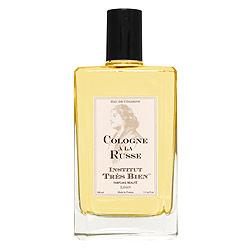

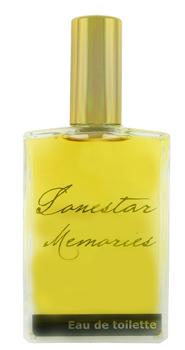
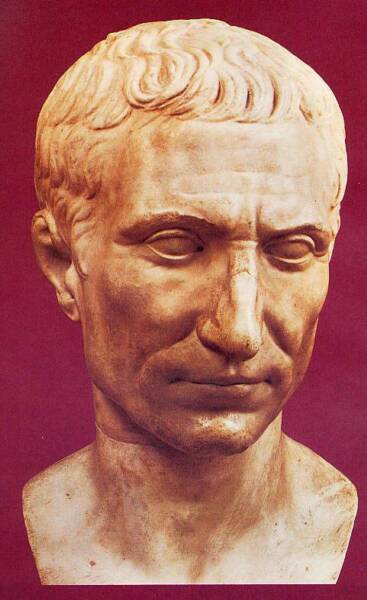
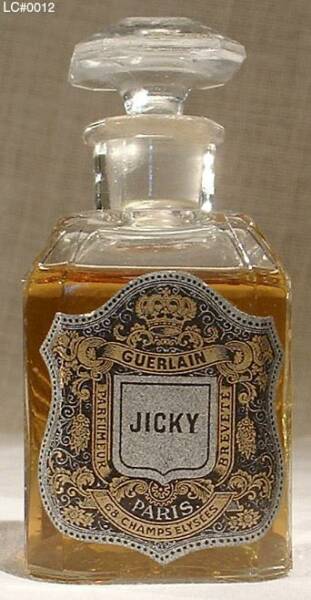
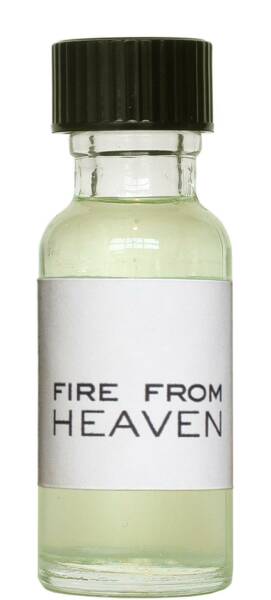
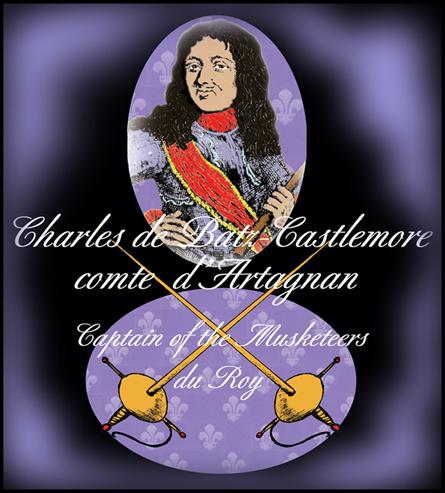
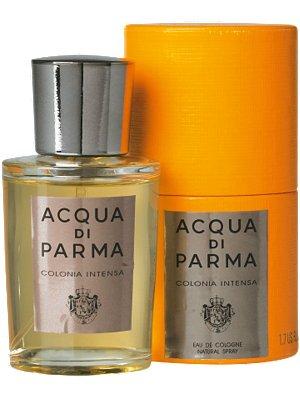

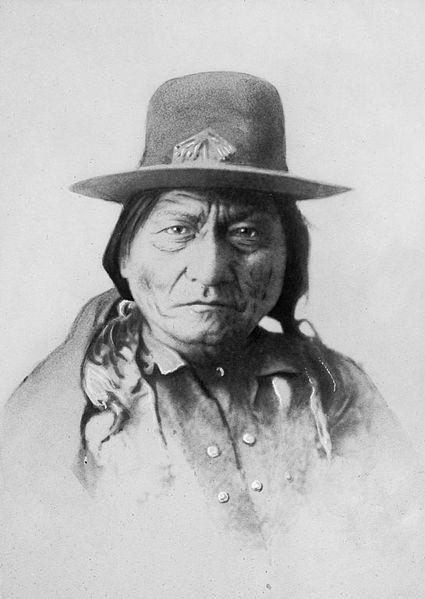
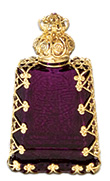

The Book: Goodbye to Berlin by Christopher Isherwood
The Character: Christopher Isherwood
The Fragrance: Anvers 2 by Ulrich Lang New York
The Nose: Ulrich Lang
The Fragrant quote: “I am a camera with its shutter open, quite
passive, recording, not thinking."
Goodbye to Berlin,is a semi-autobiographical account of Christopher Isherwood's
years spent in Pre World War II Germany during the 1930s.
It is episodic, dealing as it does with a large cast over a period of several
years from late 1930 to early 1933. It is written as a connected series of
six short stories and novellas. These are: "A Berlin Diary (Autumn 1930)",
"Sally Bowles", "On Ruegen Island (Summer 1931)", "The Nowaks",
"The Landauers", and "A Berlin Diary (Winter 1932-3)".
Moving to Germany to work on his novel, Isherwood soon becomes
involved with many different German citizens: The nurturing landlady,
Frl. Schroeder; the "divinely decadent" Sally Bowles, a young English
woman who sings in the local cabaret and her coterie of admirers; Natalia
Laundauer, the rich, Jewish heiress of a prosperous family business; Peter
and Otto, a gay couple struggling to accept their relationship and sexuality
in light of the rise of the Nazis. The book, first published in 1939, highlights
the groups of people who would be most at risk from Nazi intimidation. They are "Brilliant sketches of a society in decay". It could be our society today
The novel was adapted into a Broadway play by John Van Druten (1951), which was then adapted for a film under the name I Am A Camera (1955). We know it best as the movie and play Cabaret starring Liza Minelli.
Interestingly, the word cabaret is derived from the Latin camera, meaning a small room.
Anvers 2, combines masculine notes with florals, a concept of opposition that successfully works in achieving a unique scent that is redolent of chamomile tea, such as Frl. Shauder might have served her boarders. Anvers 2 blends Blond Woods and Musk with delicate notes of Mimosa Rhubarb and Jasmin, creating its subtle, gender bending scent.
All Ulrich Lang New York fragrances are inspired by contemporary photography; Anvers 2 is a ‘camera’ that creates a snapshot of a moment, an experience, and contains within its simple bottle, a wonderfully constructed fine fragrance.
TO: Uli, mein lieber Freund:
From: Michelyn
I urge you to read The Berlin Stories ASAP, because your brilliantly composed, androgynous fragrance Anvers 2 captures Christopher Isherwood’s experiences during the Weimar Republic so perfectly.
Available at Takashimaya NYand www.aedes.com
The Book: The Bourne Identity by Robert Ludlam
The Character: Jason Bourne
The Fragrance: Ivory soap
The Fragrant Quote: “I can tell you the license plate numbers of all six cars
outside. I can tell you that our waitress is left-handed and the guy sitting up
at the counter weighs two hundred fifteen pounds and knows how to handle himself.
I know the best place to look for a gun is the cab of the gray truck outside, and at this
altitude, I can run flat out for a half mile before my hands start shaking. Now why
would I know that? How can I know that and not know who I am? ”--Jason Bourne
The Bourne Identity is a 1980 spy/thriller novel, one of the most popular of the 20th
century, which tells the saga of an amnesiac that must discover who he is and why
so many different people, (including an assassin and the CIA) are trying to kill him.
This unknown man is found floating in the Mediterranean Sea with several bullet wounds,
including a head wound which leaves him a total amnesiac. The doctor treating him finds a message surgically embedded in his hip that contains details of a Swiss bank account presumably anonymous. During the novel, the man learns he is Jason Bourne, an American, and as he attempts to uncover his identity, he continually attracts the attention of those who fear him, warn him of danger, or try to kill him; but all assume that he already knows who he is and what they want from him. Bourne begins to suspect, (on the basis of circumstantial evidence), that he may have been a professional assassin prior to losing his memory.
As he tries to recover his memories, (brief flashes and puzzle pieces), he spends most of his time running to or from someone or some situation and avoiding being killed. He cannot leave a trace of himself for the men and women trying to find, capture or murder him. Jason Bourne would shower often with Ivory soap. He would not be able to wear a fragrance and live to appear in the next sequel, The Bourne Supremecy.
Ivory Soap can be found at any supermarket, drugstore, or bodega near you or www.drugstore.com
The Book: Rebecca by Daphne Du Maurier
The Character: Maxim de Winter
The Fragrance: Sel de Vetiver by The Different Company
The Nose: Celine Ellena
The Fragrant Quote: "If only there could be an invention that bottled up a memory, like scent. And it never faded, and it never got stale. And then, when one wanted it, the bottle could be uncorked, and it would be like living the moment all over again." –The Narrator
“Last night I dreamt I went to Manderly again” is the famous first line of this 20th century’s haunting, unnerving and powerful novel --Rebecca by Daphne du Maurier. In the end, the narrator discovers the truth about what really happened to the former Mrs. de Winter and the truth about the enigmatic man she married, Maxim de Winter.
Ah, Daphne du Maurier - the queen of the 1930's gothic novel. This was my second time reading this book, and it was every bit as deliciously dramatic as the first time around. Set in Cornwall, England in an expansive country manor known as Manderley, Rebecca is told by a nameless first person narrator, who leaves her lowly job as a paid companion to marry the eccentric and recently widowed Max de Winter, the owner of Manderley. After a wonderful honeymoon, they return to his estate, Manderley. Their happiness is shrouded in shadows. The narrator discovers that Manderley is a shrine to Maxim’s first wife, Rebecca de Winter --- her perfume, her clothing, her impeccable style; Rebecca’s larger-than-life ghost torments the narrator into a state of ultimate despair.
Ah yes. Rebecca features one the most insane
characters of all time, the creepy Ms. Danvers, who
casts her malicious spell over the narrator throughout
the book.
Spoiler quote by Mrs. Danvers: “Sometimes, I wonder
if she doesn't come back here to Manderley, to watch
you and Mr. de Winter together. You look tired. Why
don't you stay here a while and rest, and listen to
the sea? It's so soothing. Listen to it.”
Sel a Vetiver was Celine Ellena’s second solo
fragrance (Jasmine de Nuit was her first) and it is a
unique variation on the classic masculine vetiver.
The scent opens with a sharp citrus accord, and
then settles into the richness of the vetiver root;
roots dipped in sea salt. The deepness and
earthiness of the vetiver drowns in a pool of sea water.
I could find no more fitting fragrance for Maxim de Winter.
Sel de Vetiver features notes of grapefruit, cardamom,
geranium, Haitian vetiver, patchouli, iris and ylang ylang,
but as in the book Rebecca, information do not always add up.
The Book: The English Patient by Michael Ondaatje
The Character: Kip Singh
The Fragrance: Chembur by Byredo
The Nose: Jerome Epinette
The Fragrant quote: “There are betrayals in war that are childlike compared with our human betrayals
during peace. The new lovers enter the habits of the other. Things are smashed, revealed in a
new light.”- Almesy, aka the ‘English’ patient
The English Patient is a story of love, war and betrayal (towards relationships and political affiliations). The central characters come from different backgrounds, play very different roles. On a personal note, this novel is one of my “100 Books You Must Read Before You Die List”. (The movie doesn’t count, so don’t feel it is a substitute for the novel.)
Set at the end of World War II in an Italian villa, The English Patient brings together four unlikely characters: Hana, an emotionally-wounded army nurse who refuses to leave her last patient even when ordered to evacuate; Caravaggio, a friend of Hana's father, thief and spy, a man who is drawn to Hana in ways he cannot articulate; Kip, an Indian ‘sapper’ loyal to the British military who disarms bombs by day, loves Hana by night. Of course there is the mysterious burned invalid, the English patient of the title, who unites them all in unexpected ways. Told in poetic, often oblique language, this novel demands to be savored instead of read greedily. The images are just as likely to be visually precise as they are incomprehensible. The novel is unlike the movie, which concentrates on the love story between the English patient and the woman he loves. The novel is much more complex, exploring the confusing impulses that lead to both passion and danger in all the characters.
The character of Kip is the most meticulously described in the novel. Kip or Kirpal Singh, is a young ‘sapper’ originally from Punjab, India who joins the British Army in India during World War II and is eventually brought to England. There he gets training to defuse unexploded bombs that were dropped in and around London. Although he appears towards the middle of the novel, many of pages of The English Patient are devoted to describing both the most infinitesimally small as well as the major details in his life, including the training he received from the very British Lord Suffolk and the relationship that grew between him and Suffolk's family. When Lord Suffolk, a sapper himself, dies while defusing a yet unknown type of unexploded bomb, Kip's life is devastated and he decides to go to Europe, to Italy, to help defuse the mines left behind by the enemy.
Eventually Kip and Hana fall in love. An unusual chemistry builds between them; this in the middle of the stressful days of the sapper’s life when he has to defuse complicated new kinds of bombs that could destroy both their lives. Their intimacy has an unusual involvedness - more than physical intimacy & sex. But as his time spent with Hana, the English patient, and the other characters move forward, it is Kip’s perspective that is the most radically changed. After he hears about the bombing of Hiroshima, he is undone. He develops an intense hatred towards the Europeans, their intension to colonize the Asian countries and recalls what his brother had told him when he joined the British army - not to aid the English. He leaves abruptly, with the forlorn Hana beseeching him, "What have we done?”
The Book: The Razor’s Edge by W. Somerset Maughum
The Character: Larry Darrell
The Fragrances: Tabarome Millesime by CREED and Hindu Grass by Nasomatto
Noses: Monsieur Henry CREED 1936 (Tabarome Millesime) and Allesandro Guatieri (Hindu Grass)
The Fragrant Quote: “How grand the sight was that was displayed before me as the day broke in its splendour...
I was ravished with the beauty of the world. I'd never known such exaltation and such a transcendent joy”
Of all the novels and books of fiction I have read for this series, The Razor’s Edge has had the most profound effect. Written by British playwright and author W. Somerset Maugham and published in 1944, the story is set between WW I and WW II and follows a young American, Larry Darrell, who is initially portrayed as a somewhat selfish and materialistic; goes to war and sees his best friend die in front of his eyes. In the aftermath, he embarks on a spiritual journey in search of God and the Absolute. High in the mountains of India he experiences Enlightenment.
Though the plot is set in the early 20th century, the premise of The Razor’s Edge stands the test of time. Our lives or the clothes we wear may vary from the characters Maugham describe, but, for the most part, we as humans who ‘search’ are pretty much the same. Maugham's understands the universal traits of self-importance, disenchantment, ambition and love; they are expertly woven into the novel along with sex, drugs and violence; giving this novel a thoroughly contemporary premise.
As an avid reader of Maugham, it seems that Razor’s Edge is the most autobiographical of his fictional writings. Maugham, a British citizen, was an ambulance driver in WW I. After the war he ran away to Paris, trying to make sense of the place where he saw such horrors. Like Larry Darrell,
Maugham traveled to India and was very much influenced
by the teachings of the Guru Sri Ramana Maharshi. In the
book he changed the master guru’s name to Shri Ganesha.
The Larry Darrell before World War I is a changed man
by the time the novel concludes. Tabarome Millesime by
CREED is a masculine scent originally formulated in 1875
for King George IV, then reformulated and became a favorite
of Cary Grant and Winston Churchill. The man who wears
Tabarome Millesime would be one of worldly experience
and wealth. It is a fragrance that evokes an elite men’s
clubs that Larry Darrell would have frequented before
World War I and its strong tobacco note is hearty
and brings to mind robust well being. Tabarome contains
notes of tobacco leaves, green tea, pepper, and
ambergris. It smells quite unusual for a tobacco fragrance
in that it is quite fresh and self-assured…as if all is right
with the world.
By the time Larry Darrell meets Shri Ganesha, he would not
care what notes comprise a fragrance. He would beyond such
trivia. Hindu Grass is such a scent. Perfumer Alessandro
Gualtieri bottles a meditative, calming experience.
“Breathe the belief in universal peace and love. It is a result
of the quest for the warm affection of humanity.”
Fragrance and the Arts: Fiction Vol. II, Book ii: The Masculines
This is the fourth installment in a series written exclusively for Sniffapalooza Magazine; a multi sensory olfactive journey, where fragrance embraces the worlds of fiction, fine art, film, music, and dance.
Acknowledgement: This edition of ‘Fragrance and the Arts’ is dedicated to the brilliant multi sensorial métiers of perfumers as well as fragrant friends and innovators, including Michel Roudnitska, Uli Lang, Adam Brecht, Alessandro Gualtieri, Valeria Vavasorri, Sandi Burrows, Shane Costello, Raphaella, and my thanks for the support of this series expressed by the Sniffapalooza community (including “Aunt Cynthia”), and as always ‘Les Karens’.
Volume 2 Book ii
Status Quo vs. Change… Cynicism vs. Conviction… Innocence vs. Experience; all six fictional characters ‘live’ during the 20th century. These men are of our ’world’ and closer to how we feel, think and act than you might imagine. Some of the fragrant choices may surprise you! Enjoy exploring the gestalt of each character‘s transformation; I hope it makes ‘perfect scents’.
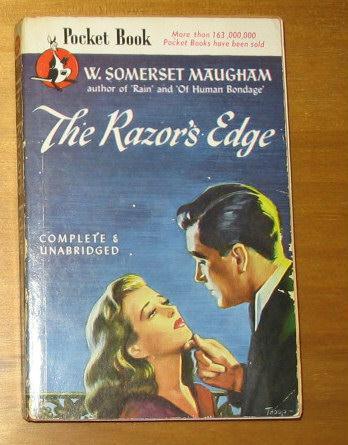
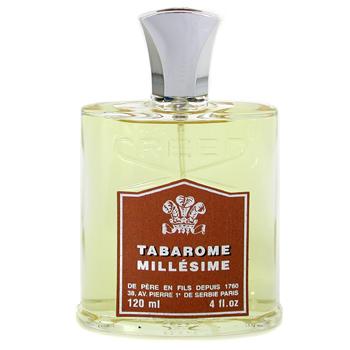
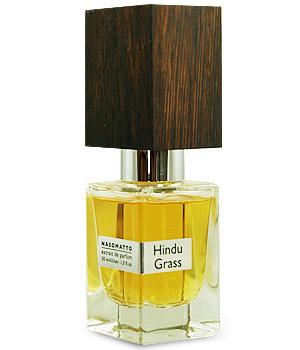

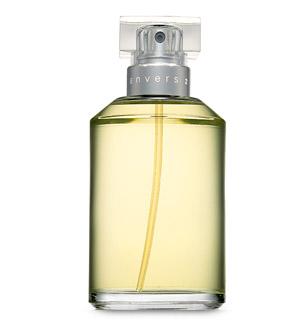
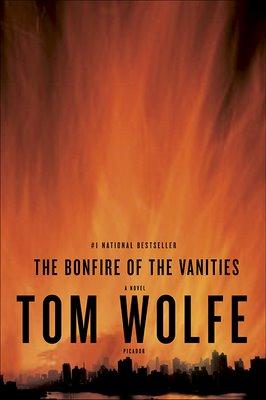


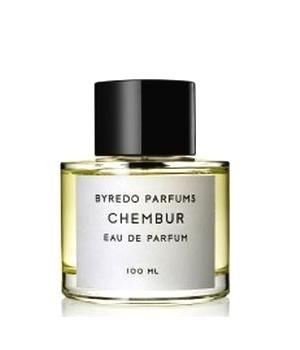
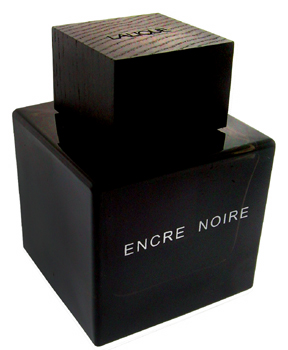
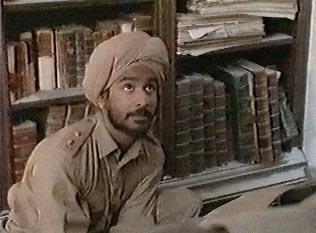
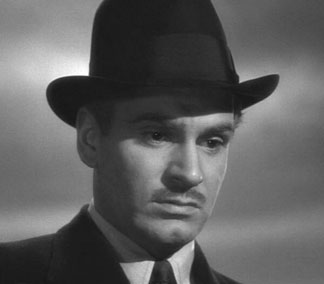
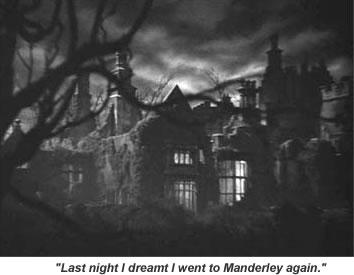
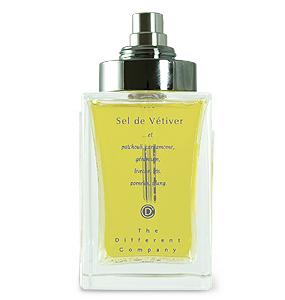
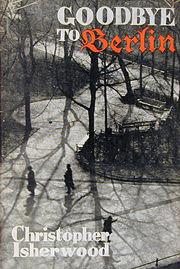
He is not like them, nor will he never be. Love is buried in the mine fields he risked his life for. In the end, everyone’s life continues. What brought them together ceases to be or has changed beyond initial recognition.
Chembur by Byredo evoked the character of Kip to perfection. Chembur is a place in India of great beauty, isolated from the pressing crowds of Mumbai—a haven. Chembur has a curious chemistry of its own; it is at once both warm and calm. The fragrance opens with a burst of bergamot, lemon and elemi (oil distilled from indigenous tree that grows in the Phillipines that evokes citrus and spice). As the fragrance settles, the heart of fiery ginger and nutmeg ‘burn’ along side the notes of smoky incense. The passionate base notes of amber, labdanum and musk slowly fade in a few hours and leave an indelible trace; a transcendental experience, an aching memory, (Hana’s memory of love for Kip?) in the drydown.
Available exclusively in the United States at Barney’s NY in October
The Book: The Bonfires of the Vanities by Thomas Wolfe
The Character: Sherman McCoy
The Fragrance: Encre Noire by Lalique
The Nose: Nathalie Larson
The Fragrant Quote: “On Wall Street he and a few others - how many? - three hundred, four hundred, five hundred? - had become precisely that … Masters of the Universe.” ---Referring to bond dealer Sherman McCoy and his colleagues.
The plot of The Bonfires of the Vanities centers on Sherman McCoy, a young, married multi-millionaire and a bond trader on Wall Street. The McCoys' extravagant partying lifestyle and wasteful spending habits are described in detail. They have it ‘all’, a swanky NYC apartment, a second home in the Hamptons, and they are so shallow that they hire a limousine to drive them just one block, rather than have friends see them walking or taking a taxi.
Sherman's life as a self-assumed "Master of The Universe" on Wall Street is destroyed when he and his mistress, Maria Ruskin, accidentally enter a desolate area in the Bronx, at night while they are driving to New York City from Kennedy Airport. As the couple flee from a would-be gang of car-jackers (who draw Sherman briefly out of his car), Maria, who takes over the driving, runs down one of them, Henry Lamb. From that point on, life will never be the same for any of the ‘ensemble’ cast of characters.
After the ‘accident’, Peter Fallow, a washed-up journalist for the tabloid City Light, is persuaded to write a series of articles about the case of ‘the poor young black man’ who has been’ the victim of a hit and run’ by am unknown white driver. Fallow is just a tool of a local religious and political leader, Reverend Bacon, who is using the case to improve his own political standing among New York's black community. Bacon uses the mother of the now comatose victim, so he can portray himself as a protector of the black community from the supposedly racist white establishment (as well as financially through civil lawsuits against the hospital and McCoy).
When McCoy is identified as the owner of the car from the hit and run attack, Fallow begins a biased series of articles that insinuate Sherman McCoy's guilt (a series for which he is ultimately awarded a Pulitzer Prize), and McCoy becomes the most hated man in New York City. By the end of the book, McCoy, although innocent, is now ‘master of nada’--- penniless, divorced, disgraced and the most hated man in New York.
Although Thomas Wolfe wrote this in 1986, it seems like it could have been written in 2008. Elliot Spitzer, AIG, MSNBC, Morgan Stanley, Fannie Mae and Freddie Mac, and those responsible for the emergency $700 billion 'bailout' of for Wall Street's Greed and Government's negligence.
Encre Noire is one of my favorite masculine fragrances. I call it ‘The Mogul Cologne’, because it befits a man who is in charge; a leader. From the square aesthetics of the wenge (African rare wood) Lalique flacon to the subtle yet distinctive juice that evokes expensive cashmere and the finest bourbon, it is for a man who truly is a ‘master of the universe’. Sherman McCoy is a wannabe; I can believe that a man like Warren Buffet would wear Encre Noire. After all he is one of the “Masters of black ink’.
This installment concludes the fragrant journeys in Fiction.
by Michelyn Camen
All rights reserved 2006-2010. All content belongs to Sniffapalooza Magazine.
All articles by individual writers and contributors, understand and agree that each article that is accepted by the Editor for publication; becomes the property of Sniffapalooza Magazine for the sole purpose of publication for Sniffapalooza Magazine. Articles may be archived for permanent use on the web site for Sniffapalooza Magazine and for future issues. All articles remain the property of Sniffapalooza Magazine for display purposes only. Sniffapalooza Magazine is solely owned and operated by Raphaella Barkley
